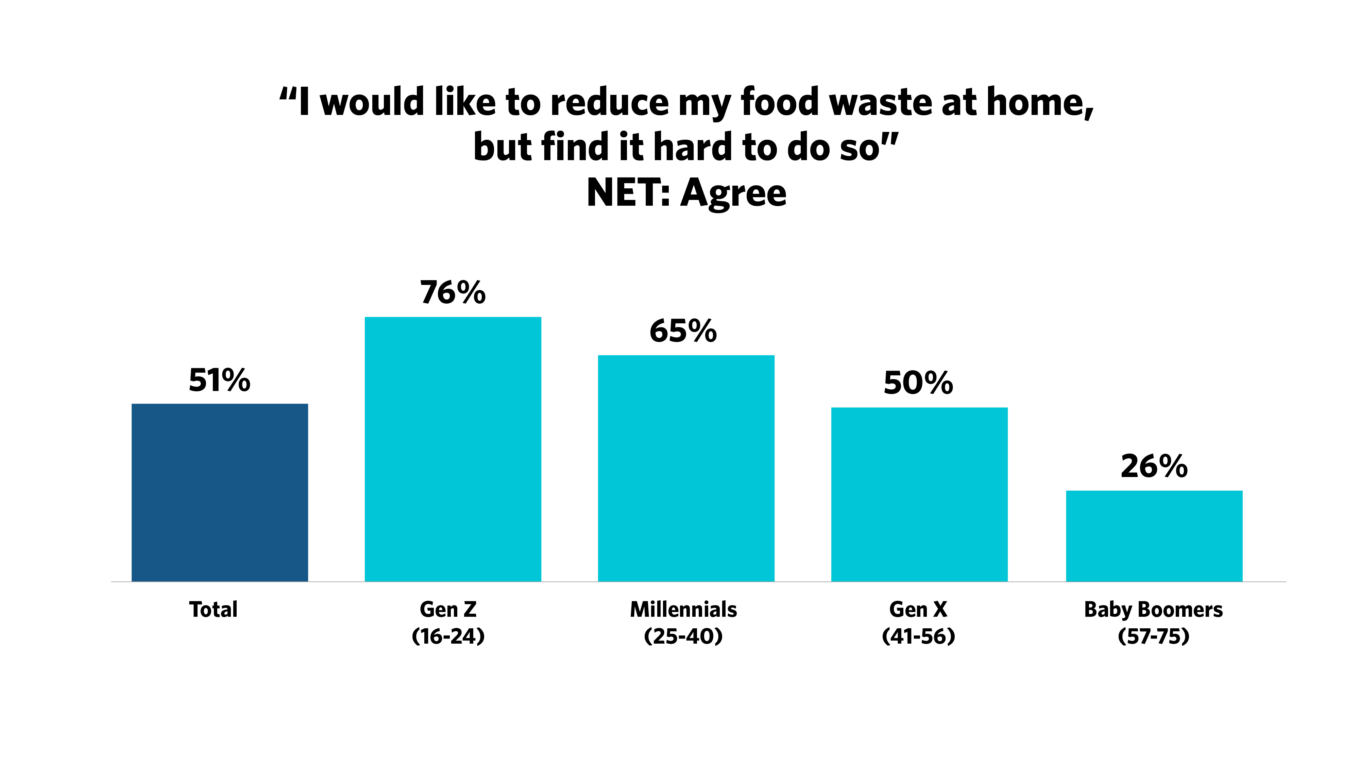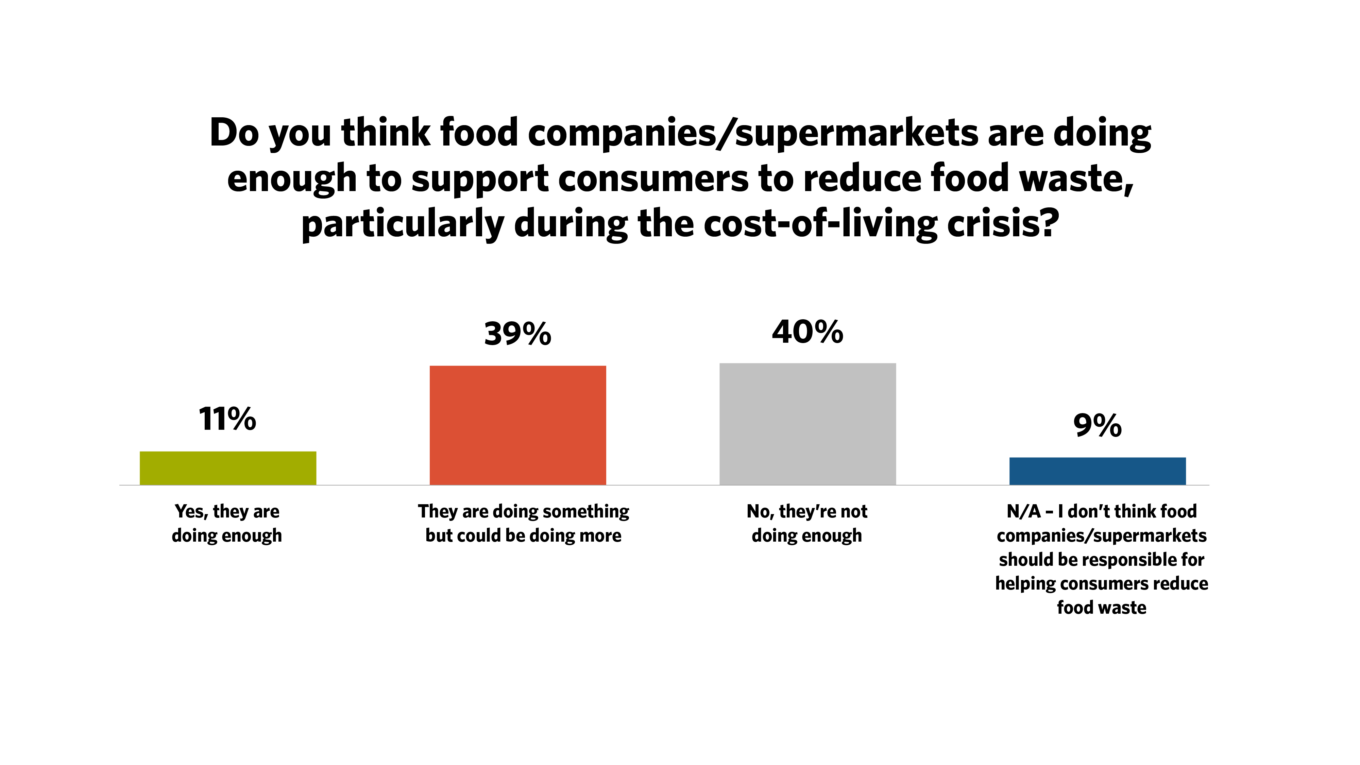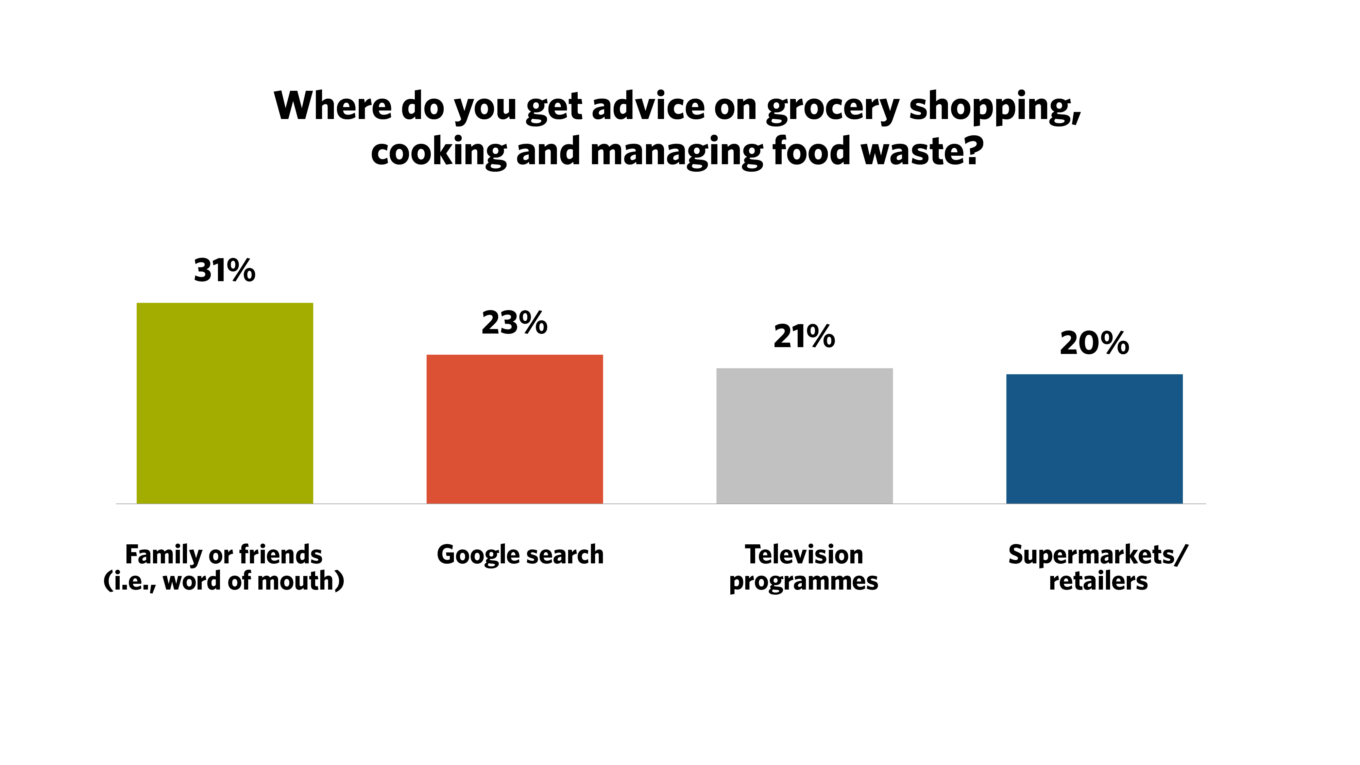Fighting food waste during the cost-of-living crisis

As the cost-of-living crisis continues to crystalise and the food and drink sector ramps up for Christmas, the FleishmanHillard UK Food, Agriculture and Beverage team assesses the implications for brand and communication teams in the last instalment of our ‘Cost-of-Living Bites’ series.
Charley Sambridge, account director, Public Affairs explores the scale of food wastage in the UK, how consumers are tackling food waste during the festive period and how food and drink businesses can help shoppers to reduce their food waste.
 Reducing food waste has clear economic, environmental and social benefits.
Reducing food waste has clear economic, environmental and social benefits.
In recent years, growing concerns about the costs of wasting produce have raised public awareness and caused many of us to act.
As part of the United Nations’ sustainable development goals, the Government has committed to halving the UK’s per capita food waste by 2030. Yet, according to the Waste and Resources Action Programme (WRAP), the UK wastes 9.5 million tonnes of food each year, valued at roughly £19 billion, enough to feed the entire country three meals per day for almost three months.
In light of increasing cost-of-living pressures and increasing food prices, how serious are consumers about tackling personal food waste?
In short, people want to do more but they find it hard to do so and they are looking to retailers and the food industry for help.
Over half (51%) are trying to reduce their food waste at home but are struggling – and this rises to 76% of Gen Z and 65% of Millennials.

Meanwhile, an overwhelming majority (84%) are more careful now than before to use up leftovers.
Christmas is often seen as a time of excess, yet this data shows many are considering their habits to cut unnecessary food waste. According to the Love Food Hate Waste campaign, almost 75 million mince pies, five million Christmas puddings, and two million turkeys go uneaten over the festive period while still edible.
So, how are the British public thinking about their celebrations this year, with their final supermarket shop of 2022 at the front of mind? Most consumers (81%) are now planning how much food they need for Christmas/the festive period to try and reduce leftovers/food waste – significantly driven by household cost pressures.
A survey of 3,000 people in the UK (2,005 adults and 1,007 children), carried out by BBC’s Good Food, found that rising prices are having a significant impact on what people are buying and eating. Children have strong opinions on budgeting as well. When questioned on how their family could be doing more to save on costs when cooking, many cited making more use of the food they already have in the house (61%) and purchasing cheaper ingredients (55%).
62% of respondents to our survey note that they can’t afford to buy the same amount of food for the festive period this year that they would usually get. Meanwhile, 84% agree that the cost-of-living crisis will make them more conscious of food waste at Christmas this year.
This is having a direct impact on consumer behaviour, as 85% of people are now trying to reduce their food waste because food is more expensive. On a day-to-day basis, many individuals (59%) buy more long-life/tinned goods than they used to whilst a similar amount (58%) rely more today on frozen produce.
To help them drive down their waste, and save money, British consumers want food brands and retailers to do more. Only 11% think that these companies are doing enough to help consumers reduce their food waste during the cost-of-living crisis.
They are also firm in their belief that brands and supermarkets have a responsibility to acknowledge here, as fewer than one in 10 (9%) say firms have no role to play in supporting consumers to address their food waste.

People cite various actions that would help, including selling ‘wonky’ produce, stopping best-before dates, selling smaller amounts of food, advice on storing food correctly, and recipe tips to make the most of leftover items. There has also been a notable rise in food waste apps whilst some supermarkets are making more use of ‘yellow labels’ for reduced-price items nearing their expiry date.
But the people we polled want to see further action and advice to drive down waste and excessive spending. An inability for consumers to act, because of a lack of awareness, time, and education, has major implications. According to the United Nations, the direct economic consequences of food wastage (excluding fish and seafood) run to the tune of £670 billion annually across the globe.
It has been argued that individuals usually waste food at home because these three factors inhibit meal planning and lead to confusion. Not knowing how to properly store food and misunderstanding labelling and expiration dates are key contributors to the 340 million tons of food wasted at the consumption level globally each year.
Retailers, therefore, need to step up to the plate and meet consumers where they are. Most are likely to turn to family or friends (31%), Google searches (23%), TV (21%) and supermarkets (20%) for advice on grocery shopping, cooking and managing food waste. While three-quarters of British consumers overall look for such advice (75%), this rises to a massive 94% amongst Gen Z, which presents an opportunity for businesses in the food industry, as this cohort represents the weekly shopper of tomorrow.

Not doing more whilst food poverty has reached unprecedented levels is not an option. For the first time outside of the first year of the pandemic, food banks in the Trussell Trust network have distributed over 2.1 million food parcels in 2021-22.
Food and drink businesses need to be alive to consumer demands and concerns this Christmas and communicate with their customers alongside offering simple but effective solutions.
Find Out More
-
Platinum CMS Award
March 13, 2024
-
Changing Communications Tack at Mobile World Congress
February 21, 2024


